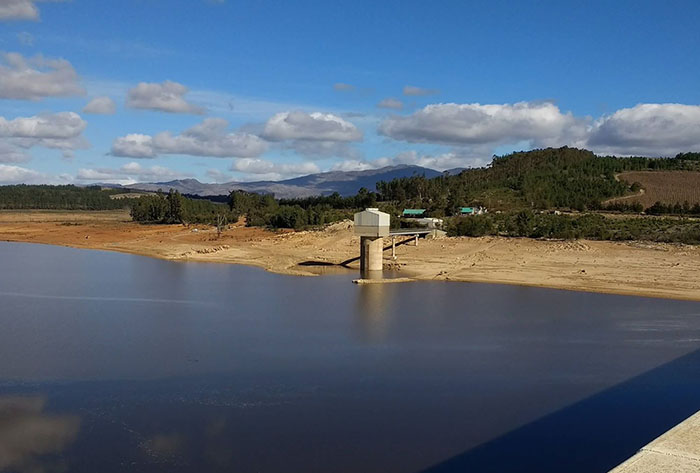Many Capetonians are concerned about the condition of the local water supply to households and businesses, with some detecting an earthy flavour. The City of Cape Town has reassured that the water remains safe to drink and is compliant with SANS241 standards, however, the VOC took the concerns and raised them with an independent water expert, specialising in water treatment.
This comes after Cape Town has just begun to recover from a long drought and the severe mismanagement of the water supply by the City of Cape Town’s administration.
The water expert referred to as “Nico Ben” told VOC that “as a water service provider, the City is obligated to confirm that the water does conform to standards”.
“They have to regularly test [the water] on a list of parameters and all the parameters have to be within a particular limit to be declared safe to drink,” said Ben.
When asked whether he is of the opinion that the water is indeed safe for consumption, Ben could only offer some insight into past experiences and insisted that the only way to know for sure is for the City to provide proof of analysis.
“I remember growing up, often at the change of season water would have a bad smell. We were told it was due to an algae bloom in the dams or some organic compound that’s not harmful,” said Ben.
[It is] possibly quite likely the water is safe to drink, but as to date, we haven’t seen any analysis of this water. For me, to know that my water is safe to drink I want to see on an analysis, everything that is declared…[a description of] what the water must be to be safe to drink and that it is actually safe to drink.”
“To say without a doubt that the water is safe? I can only do that if we’ve seen an analysis. It’s arrogant to say ‘yes, the water is safe without a doubt’, if you haven’t legitimately and diligently done your tests.”
The City of Cape Town says the change in taste is due to the presence of geosmin in the raw water supply. The City has emphasised that geosmin poses no threat to human health.
“It is a naturally occurring organic compound and is responsible for the earthy taste of beetroot and the scent that occurs in the air when rain falls after a dry spell. The compound is sometimes present in water, particularly during periods of hot weather, and even minute concentrations of a few parts per trillion can be detected by the human palate,” said the City.
Currently, there are high levels of geosmin in the raw water supply from the Theewaterskloof Dam. This is affecting the taste and smell of the water supplied from the Blackheath and Faure Water Treatment Plants to the northern, central and southern areas of Cape Town.
“The City is currently dosing powdered activated carbon during the water treatment process to reduce the effect of the geosmin. However, it may take some time for the taste and smell of the water to normalise. The water remains safe to drink,” it added.
Ben added that the City was not the most forthcoming with information regarding tests on water and the results thereof.
“The City has been very difficult to attain tests from. They’ve been very reluctant in releasing any tests. I’ve been struggling with the same thing.”
Some further details on water treatment and testing were then provided by the water treatment expert.
“How water is treated depends entirely on the source. The majority of our water comes from surface water treatment, i.e. a river or a dam. Typically, the water in the dams is treated for colloidal organic material. That’s what gives our dam water the pee-like colour,” said Ben.
“There are also what we call aesthetic limits, which means if it’s [the water] over a certain limit, it’s not unsafe to drink but you will taste the iron.”
“There is also a chronic health limit, which then means if you drink the water continuously over an extended period of time, it may affect your health.”
“Lastly we have acute health risks which means if the water doesn’t conform, it is poisonous to drink.”
VOC






 WhatsApp us
WhatsApp us 

